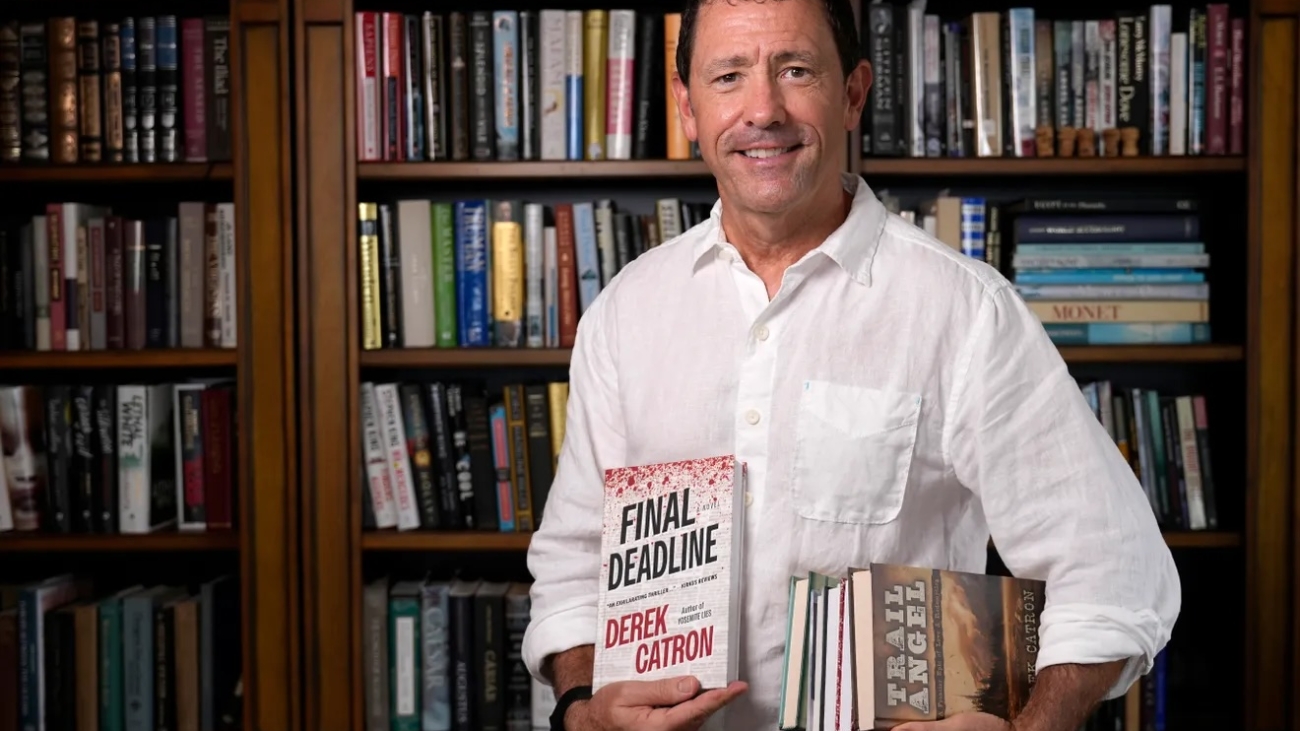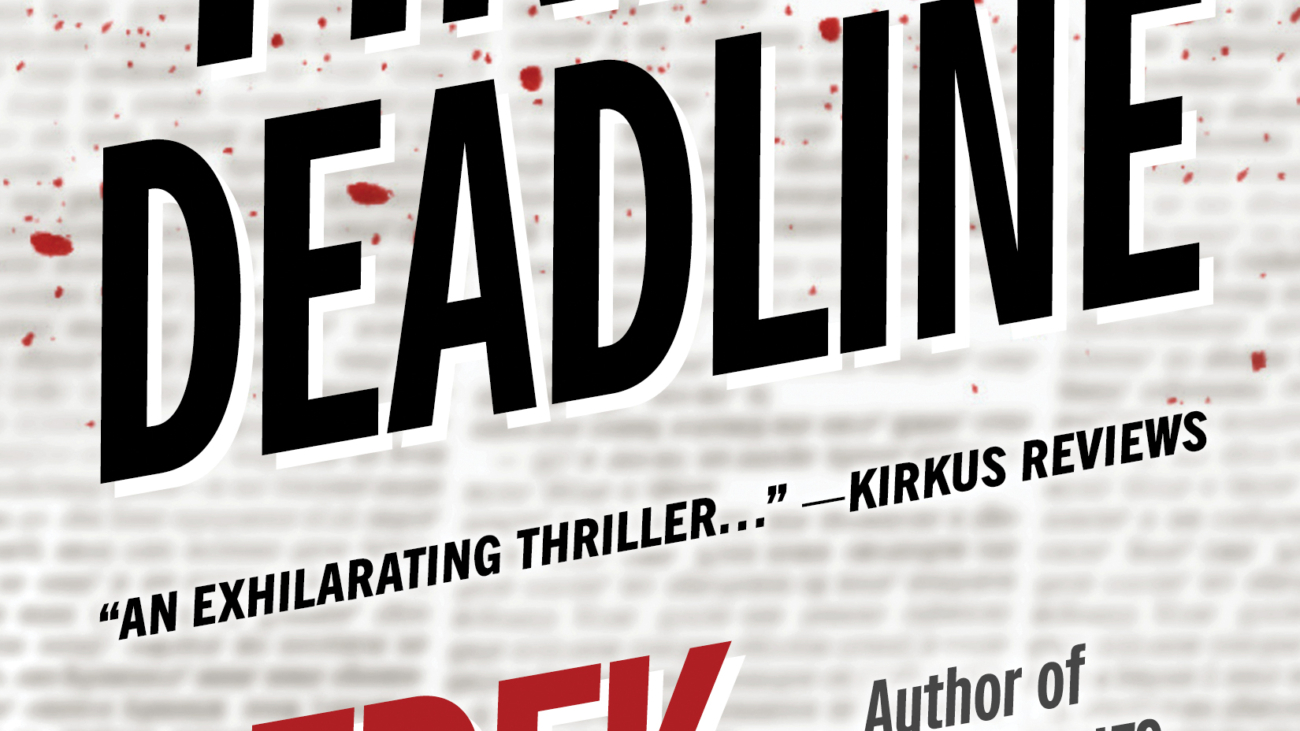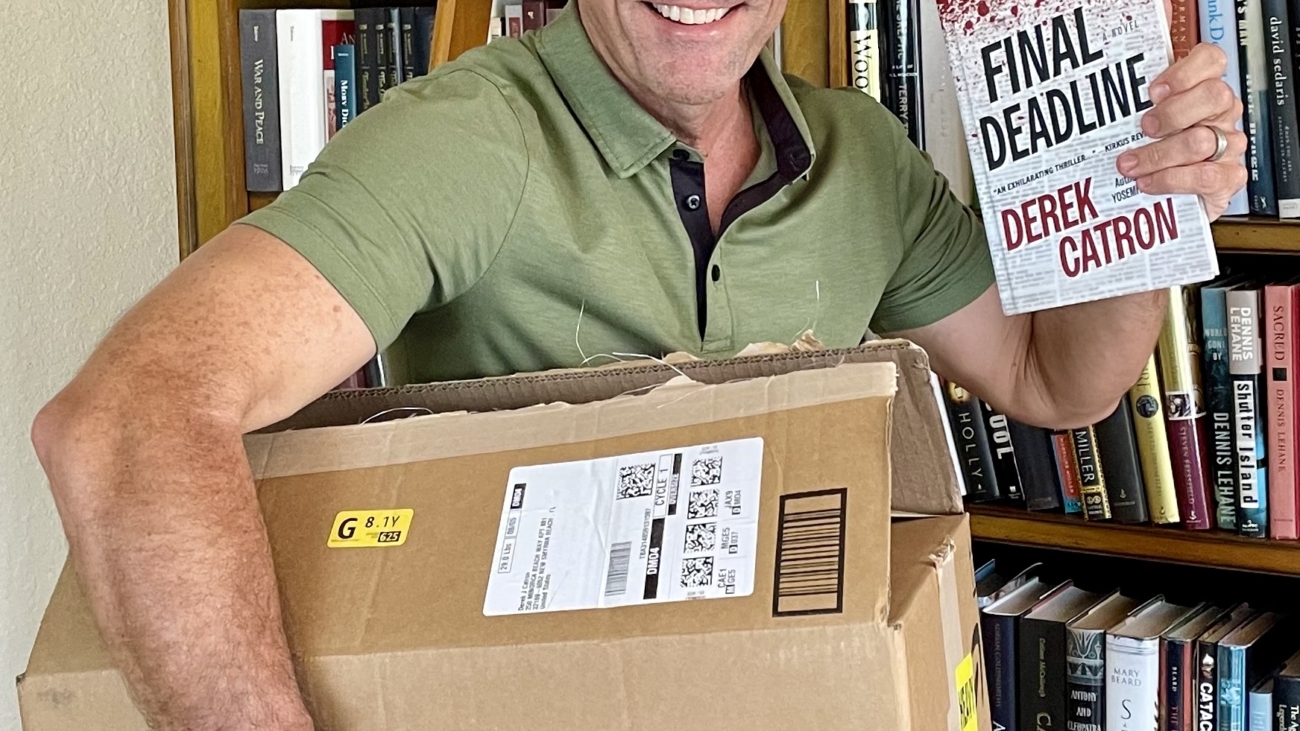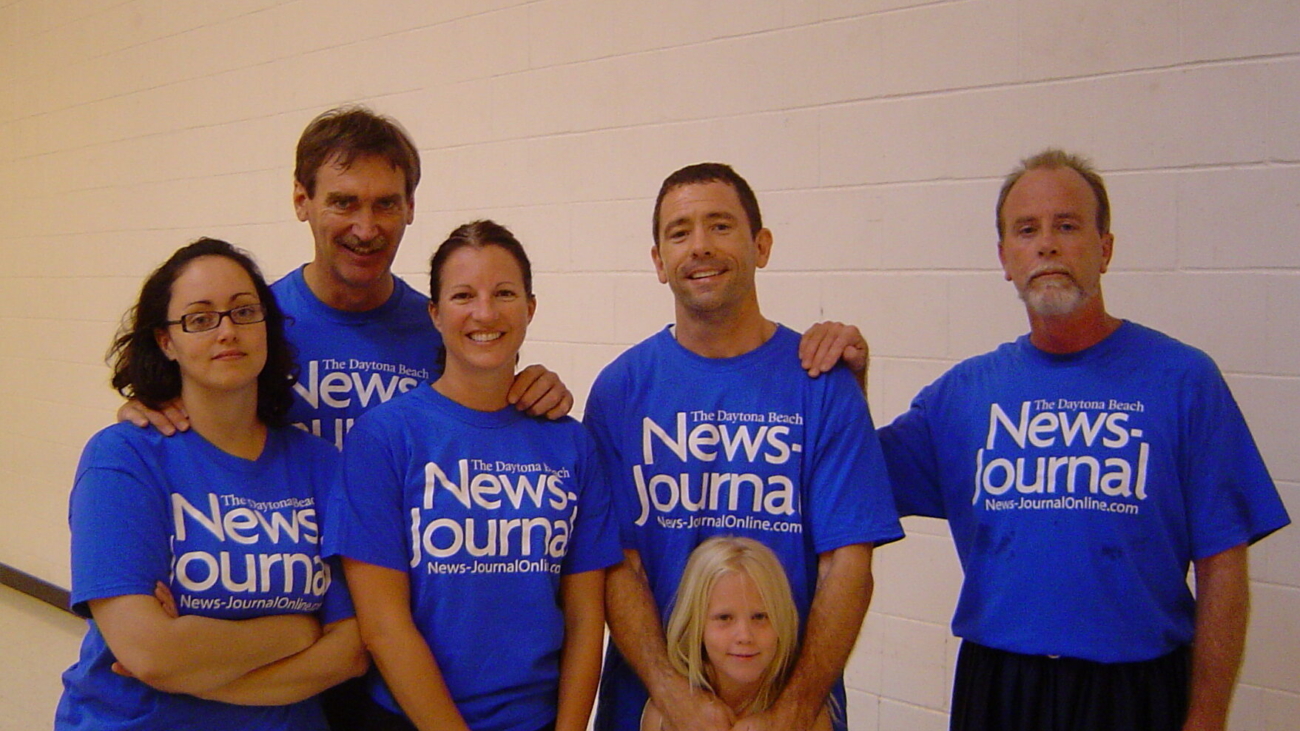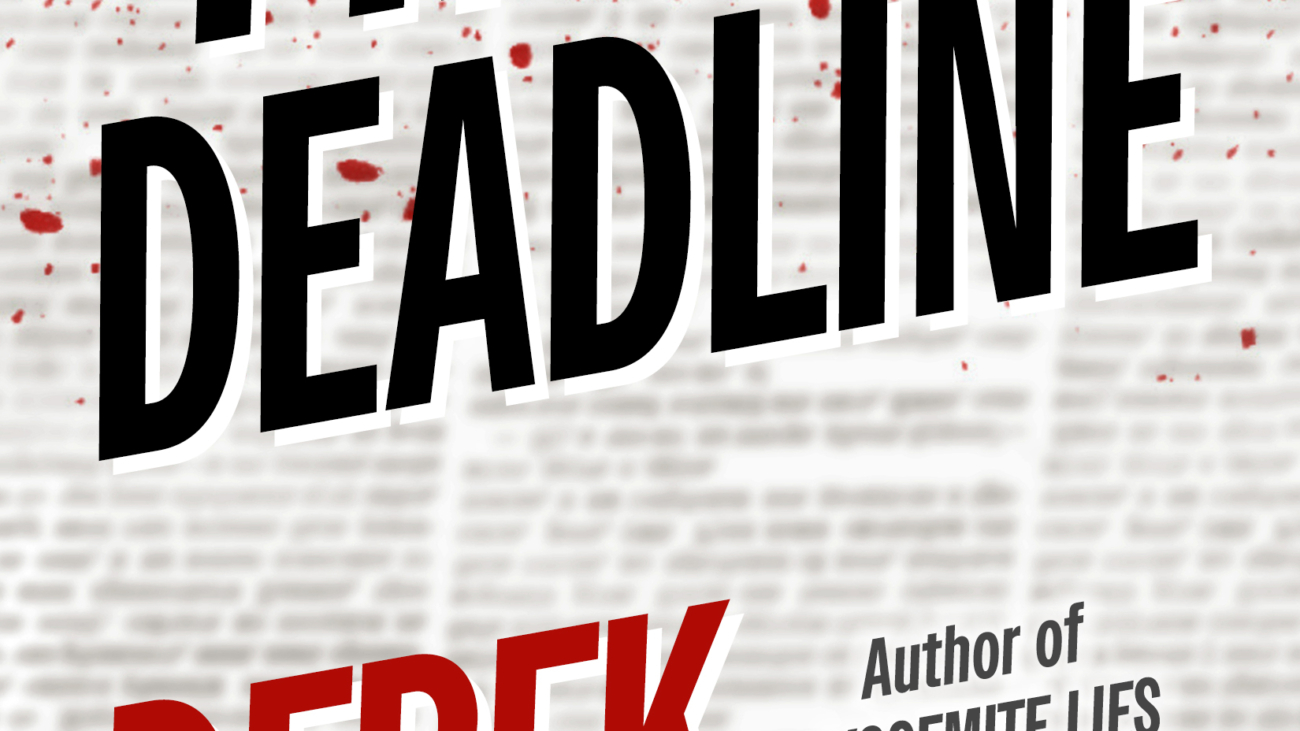Feeling honored and grateful to find myself on the front page of the September 20 Daytona Beach News-Journal. Jim Abbott is a gifted writer, and he captured the essence of my new novel, Final Deadline, which he called a “tale of embattled journalists trapped in a politically motivated hostage situation [that] unfolds at a breakneck pace.” Thanks also to my writers’ group partner Ginger Pinholster, who praised the book’s balance of action and bigger messages, and Nigel Cook, who has a knack for making people look better than even AI could manage. You can read the story below:
Volusia author Derek Catron conjures newsroom suspense with new novel, ‘Final Deadline’
By Jim Abbott, Daytona Beach News-Journal, Sept. 20, 2024
In “Final Deadline,” a new thriller set in a newspaper’s newsroom, Volusia County author Derek Catron’s tale of embattled journalists trapped in a politically motivated hostage situation unfolds at a breakneck pace measured in minutes and hours that tick away like a deadline clock.
In reality, the novel represents the culmination of a project that has occupied Catron’s imagination for more than five years, as he searched for a story that would be a page-turner and at the same time illuminate the challenges that have beset the journalistic profession in the digital age.
“This is meant to be suspenseful, so you want to turn the pages to find out what happens next, but the current beneath that is that more newspapers are shutting down and shriveling to a shell of what they once were,” said Catron, 57, a former managing editor of The Daytona Beach News-Journal.
“That’s the story I couldn’t shake, that I wanted to tell.”
At the center is newsroom veteran Becket Thompson, managing editor of the fictional Palmetto Press.
Under ownership by a profit-driven investment group, the newspaper’s staff has endured low salaries and layoffs, but the stakes suddenly become life-and-death when a trio of brothers burst into the newsroom wielding AR-15s.
They threaten to start killing hostages unless the newspaper prints a manifesto promoting an array of conspiracy theories. As the crisis unfolds, Becket fights to keep his colleagues safe in a situation that tests his courage, intelligence and commitment to the ethics of his profession.
Along the way, he also struggles to express his romantic feelings about the newspaper’s marketing director, Laura Wilson, who emerges as smart, strong force in the standoff against the gunmen.
For newspaper veteran, ‘Final Deadline’ is personal
“Final Deadline” ($24.99, Minorca Publishing, 292 pages) is Catron’s fifth book, following the well-received Trail Angel trilogy of historical westerns and his first modern-day thriller, “Yosemite Lies,” the latter published in 2023. It’s available on amazon.com or via links on his Facebook author page.
Catron also will be on hand for a book launch event from 4-7 p.m. Nov. 2 at Novel Tea Book Shop in Ormond Beach.
After decades working in newsrooms, Catron calls “Final Deadline” his most personal book yet.
“I wanted to write a story that shows that local media matters, even when people are ignoring it much of the time,” he said. “The stories in local newspapers help offer a sense of community, keep you better informed about the place where you live and the people you call your neighbors.
“It unites a community to a point where, when they lose that institution, there’s a cost to that. The book does not preach these things, but I hope you come away with that.”
“Final Deadline” excels at balancing action and its bigger messages, said Ginger Pinholster, award-winning Ponce Inlet author of novels that include “Snakes of St. Augustine.” Pinholster is a member of a local writer’s group that offered Catron feedback during the creation of his newsroom story.
“It’s a classic example of a crime thriller, meticulously well-plotted, as all of Derek’s books are,” she said.“As with the other books, there’s a wonderful romantic spice. He’s so good at suspense. He understands the fundamental nature of story, which is, of course, conflict.”
New publishing company offers control
To market his books, Catron formed an LLC, Minorca Publishing, to take better control of his work. In September, he is retiring from his role as an editor at Northstar Travel Group, a travel business news website, to focus solely on writing.
The success of initially self-published authors such as Colleen Hoover, whose 2016 book “It Ends With Us” has been transformed into a hit movie starring Blake Lively, offers optimism for hard-working independent authors, Catron said.
“Today, it’s both easier than ever to publish a book, but harder than ever to find an audience for it,” he said. “There are more than 30 million books on Amazon today, but I see the potential in it now.”
For instance, based on Amazon analytics, Catron’s “Trail Angel” has connected with readers in India, he said.
“That’s pretty cool. This is a new world that we’re in as far as readership goes. For those who dream and work really hard at it, there’s a path.”
